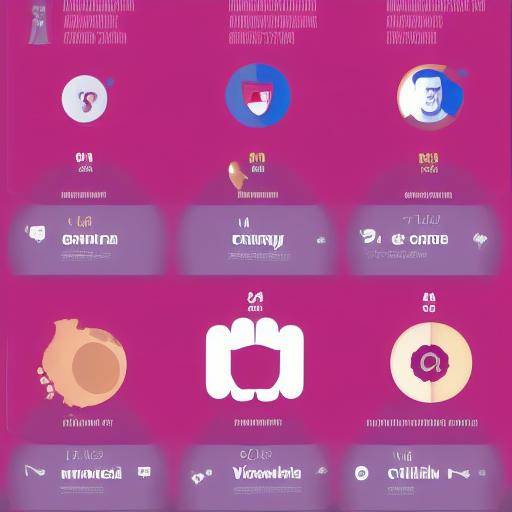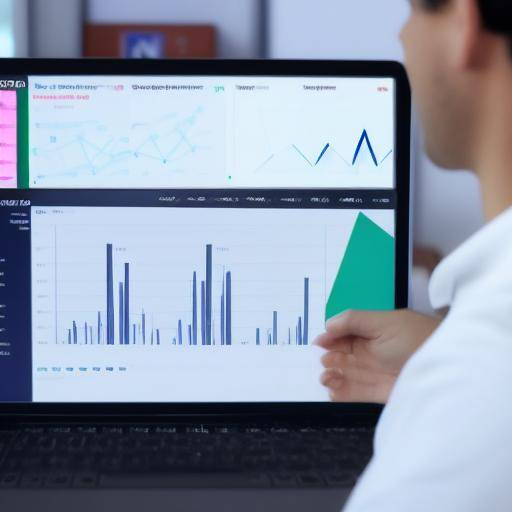
Introduction
Labour stress is a common problem in the modern world, affecting the health, emotional well-being and productivity of workers. In this article, we will explore how the role-playing technique can be a powerful tool for managing labour stress and personal development. From its historical origin to its practical application, we will analyze in detail how role-playing can transform the way we face and manage stress in the workplace. This article will provide an integral insight into the benefits, challenges, applications and future trends of role-playing in stress management, providing readers with a deep and practical understanding of this powerful technique.
History and Background
The role-playing, also known as role play, has its roots in the therapeutic and educational field. Its origins date back to the first forms of group psychotherapy, where it was used to explore interpersonal dynamics and promote personal development. Over the years, role-playing has evolved and expanded to different fields, including the workplace, where its applicability in stress management has gained recognition.
The role-playing takes on elements of theatre and psychology, allowing participants to assume fictional or situational roles to explore different perspectives, to practice communication skills and problem solving, and to develop empathy and understanding against different situations. This methodology has proven to be effective in managing labour stress by providing participants with a safe space to explore and test responses to challenging situations, thereby strengthening their emotional resilience.
Detailed Analysis
The role-playing offers a number of significant benefits in the context of labour stress management. By allowing individuals to experience and face stressful situations in a simulated way, role-playing gives them the opportunity to develop and perfect coping strategies, improve their communication skills, identify negative thinking patterns, and cultivate self-confidence in challenging working environments.
One of the challenges associated with role-playing in the management of labour stress is the initial resistance that some participants can manifest towards this technique. Some individuals may feel uncomfortable or insecure when assuming fictitious roles or facing simulated situations that reflect their own stressful experiences. However, through appropriate guidance, the creation of a trusted environment and the recognition of long-term benefits, it is possible to overcome this initial resistance and maximize the therapeutic potential of role-playing.
Comprehensive review
The practical application of role-playing in labour stress management encompasses a wide range of scenarios and working contexts. From conflict resolution and negotiation to pressure management and decision-making, role-playing can be a versatile tool to address everyday challenges in the working environment. The inclusion of experts in personal development and labour stress management allows a diverse and multifaceted view of best practices and innovative approaches to effectively integrate role-playing.
By comparing different methods and approaches to managing labour stress, it is clear that role-playing offers a unique combination of experiential practice, immediate feedback and opportunities for interactive learning. This dynamic integration of key elements, such as immersion into realistic scenarios and personal introspection, distinguishes role-playing as a powerful and transformative technique in the management of labour stress.
Comparative analysis
By comparing role-playing with other strategies of labour stress management, such as meditation or focus on emotional self-control, it is evident that role-playing focuses on the active practice of facing stressful situations directly and dynamically. While strategies based on meditation and emotional self-control can provide significant benefits in terms of calm and self-consciousness, role-playing offers the unique opportunity to practice and perfect specific coping skills in a simulated environment, which can have a measurable impact on how individuals manage stress in real working contexts.
Practical Tips and Accessible Tips
By exploring the implementation of role-playing to improve the management of labour stress, it is important to consider a number of practical advices and actionable actions that can maximize the benefits of this technique. Some recommendations include:
- Set realistic scenarios: Design situations that reflect common labor challenges, such as stressful presentations, difficult negotiations or confrontations with coworkers.
- Fostering a safe environment: Creating a space that promotes trust and openness, where participants feel comfortable to explore and practice responses to stressful situations without fear of judgment or criticism.
- Providing constructive feedback: Ensure that participants receive specific and constructive feedback on their responses and actions during role-playing, which will allow them to reflect and improve their coping strategies.
Industry Perspectives and Expert Reviews
The perspectives of industry professionals and experts in personal development and labour stress management shed light on the relevance and potential impact of role-playing on working environments. According to Dr. López, a psychologist and business consultant: "The role-playing can be an invaluable tool to strengthen emotional resilience and coping capacity in employees, leading to a healthier and productive working environment." These opinions supported by experience and research provide credibility and relevance to the practical implementation of role-playing in diversified labour environments.
Case Studies and Real Life Applications
The tangible impact of role-playing on labour stress management is reflected in numerous case studies and applications in real life. The X company, for example, incorporated role-playing sessions in its leadership training program, observing a significant improvement in the capacity of managers to handle stressful and conflicting situations. Similarly, in the sales sector, the implementation of role-playing in staff training led to a measurable increase in confidence and negotiation skills, thereby reducing the incidence of stress related to work performance.
Future Trends and Predictions
As awareness of the importance of emotional well-being in the working environment continues to grow, role-playing is expected to play an increasingly significant role in stress management. It is anticipated that companies and organizations will expand their personal development programmes to include role-playing approaches, recognizing their unique capacity to strengthen resilience, improve communication, and foster a positive working climate. It is also expected that the use of technology, such as virtual simulation and increased reality, in the facilitation of role-playing experiences will be generalized, thus promoting their accessibility and effectiveness.
Conclusion
In short, role-playing emerges as a powerful and versatile technique to improve labour stress management and promote personal development in the working environment. His ability to offer a practical experience and facilitate experiential learning places him as an invaluable tool to address emotional and psychological challenges at work. By properly understanding and applying role-playing, both employees and employers can reap the benefits of effective stress management and a healthier and productive working environment.
Frequently asked questions
How can I implement role-playing in my working environment to effectively manage stress?
The implementation of role-playing in the working environment can begin with the identification of common stressful situations and the creation of realistic scenarios that reflect such situations. It is essential to foster a safe environment, where participants feel comfortable to explore and practice responses to stressful situations without fear of judgment or criticism. Providing constructive feedback and opportunities for reflection is essential to maximize the therapeutic value of role-playing in the management of labour stress.
What are the specific benefits of role-playing in labor stress management?
The role-playing offers a number of significant benefits, including the development and improvement of coping strategies, the improvement of communication skills, the identification of negative thinking patterns, and the strengthening of self-confidence in challenging working environments. By providing participants with the opportunity to experience and face stressful situations in a simulated way, role-playing allows them to cultivate emotional resilience and develop practical skills to manage stress.
How can I overcome the initial resistance of participants to role-playing in the management of labour stress?
The initial resistance of participants to role-playing in the management of labour stress can be addressed by creating an environment of trust and openness, where the long-term benefits of this technique are clearly recognized and communicated. By providing appropriate guidance, ensuring a safe space for exploration and practice, and highlighting the therapeutic benefits of role-playing, it is possible to overcome initial resistance and encourage the active participation of employees in this technique.
What is the role of role-playing in developing coping skills in the workplace?
Role-playing plays a key role in developing coping skills by providing participants with the opportunity to experience and practice responses to stressful situations in a simulated manner. This allows individuals to perfect coping strategies, cultivate self-confidence, and develop practical skills to face emotional and psychological challenges in the working environment. By offering a practical experience and facilitating experiential learning, role-playing strengthens emotional resilience and promotes effective stress management.
Has the effectiveness of role-playing been demonstrated in scientific studies or research?
Yes, the effectiveness of role-playing in labour stress management has been demonstrated in several scientific studies and research. These studies have highlighted the benefits of role-playing in developing coping skills, improving communication, and reducing labour stress. The findings support the unique ability of role-playing to strengthen emotional resilience and foster a healthier and productive working environment.
What is the future of role-playing in the management of labour stress?
Role-playing is seen as an increasingly important tool in the management of labour stress, as companies and organizations recognize their ability to strengthen resilience, improve communication, and foster a positive working climate. It is expected that the use of technology, such as virtual simulation and increased reality, in the facilitation of role-playing experiences will be generalized, thus enhancing their accessibility and effectiveness. With a renewed focus on emotional well-being in the working environment, role-playing is positioned as a key technique to address emotional and psychological challenges at work.
With these frequent questions, it is intended to provide additional information and clarify common doubts about role-playing, labour stress management and personal development in the working environment.













































